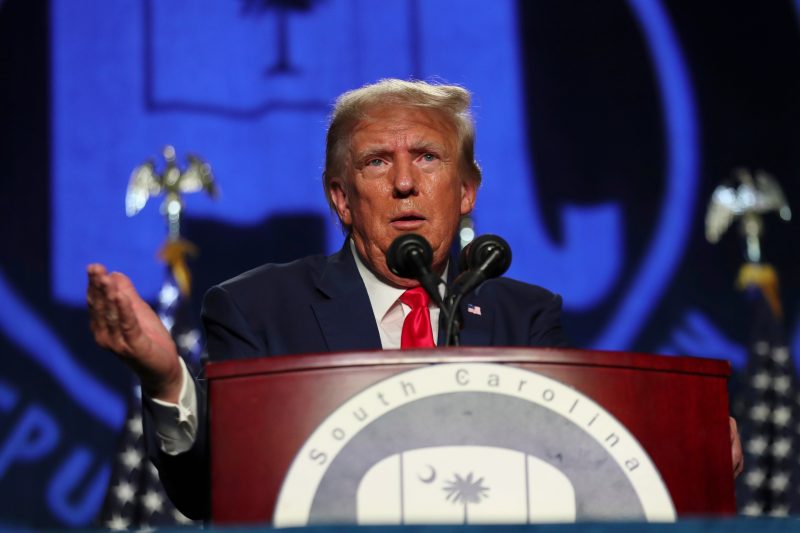On Aug. 29, 2019, Iran attempted to launch a satellite into space. The effort failed; the rocket carrying the device exploded on the launchpad.
An American surveillance satellite passing overhead snapped high-resolution photographs of the damage. The following morning, during his daily security briefing, one of the photographs was shown to President Donald Trump.
“Trump thought this was very neat, and asked if he could keep it,” an official with his administration later said. “And after some hesitation, the intelligence briefer said, ‘Yes.’”
An hour later, it was on Twitter.
The United States of America was not involved in the catastrophic accident during final launch preparations for the Safir SLV Launch at Semnan Launch Site One in Iran. I wish Iran best wishes and good luck in determining what happened at Site One. pic.twitter.com/z0iDj2L0Y3
— Donald J. Trump (@realDonaldTrump) August 30, 2019
The intelligence community was aghast. Releasing the photo was “incredibly stupid and ridiculous and damaging,” a former official at the National Reconnaissance Office told Yahoo News. Within minutes of its publication, political observers started mulling over a now-familiar debate: to what extent did Trump have the ability to unilaterally declassify classified material?
That question has been central to conversations about the federal indictment of Trump made public in Florida — the one focused on his retention of national security material after leaving office. But this incident is also newly salient to the other federal indictment, the one in D.C.
Can the government trust Trump and his attorneys with unfettered access to evidence from his case?
This is one of the earliest issues to arise as the criminal process moves forward in the D.C. case. Trump’s legal team, which includes attorney John Lauro, is objecting to strict limits on information sharing sought by the government. Lauro’s argument is rooted in precisely what you might assume, given his existing arguments in the case: such limits impinge on Trump’s First Amendment rights.
“Worse,” he wrote in a filing, “it does so against its administration’s primary political opponent, during an election season in which the administration, prominent party members, and media allies have campaigned on the indictment and proliferated its false allegations.”
The evidence of the administration campaigning on the indictment is … shaky, centering on President Biden plugging his new campaign merchandise on the day of Trump’s D.C. arraignment.
Lauro’s filing leans into the political angle, though, quoting the 2014 Supreme Court case McCutcheon v. FEC.
“With respect to speech, the First Amendment ‘has its fullest and most urgent application precisely to the conduct of campaigns for political office,’” the filing reads, “and a restriction on ‘political speech [that] does not avoid unnecessary abridgment of First Amendment rights … cannot survive “rigorous” review.’”
As attorneys for the government note, the focus of this argument is obvious. With the argument above, Lauro isn’t making a case about how his client can best prepare his criminal defense. Instead, he is proposing “an order designed to allow him to try this case in the media rather than in the courtroom.”
“The defendant’s proposed order would lead to the public dissemination of discovery material,” the government wrote in a response. “Indeed, that is the defendant’s stated goal; the defendant seeks to use the discovery material to litigate this case in the media.”
The filing included a number of comments made in Lauro’s numerous television interviews over the weekend, as well as Trump’s social-media post lambasting former vice president Mike Pence, a possible witness in the case.
The special counsel’s office also noted a bit of hypocrisy on the part of Trump’s legal team. Lauro has been touting the idea that the trial should be moved out of D.C., complaining that prospective jurors would necessarily be prejudiced against Trump, given the city’s politics. But, the government points out, Trump’s team wants the ability to share exculpatory evidence publicly, which would itself “risk tainting the jury pool with inadmissible evidence or otherwise harming the integrity of these proceedings.”
Disputes over the constraints of a trial are certainly not uncommon. But this trial is, and this dispute reflects that unusual nature. Trump, unlike most defendants, is engaged in a two-pronged effort to avoid criminal sanction. The first is the effort Lauro is leading in the courtroom. The second is the one in which Lauro has been engaged in the media — the effort to frame perceptions of Trump and the case that will aid his political ambitions. If Trump wins the Republican nomination and then the presidency next year, this prosecution or any conviction is likely to evaporate. Winning the election may in fact be the best bet to sidestep these charges.
That means that the public presentation of the case becomes a much more important component of his efforts. There is more incentive for Trump and his allies to present exculpatory evidence to the public … or, at least, evidence that can be framed as exculpatory. If Trump is handed a document that he thinks proves his innocence, should we expect that he would hesitate before posting it to the internet? Did he have many qualms about posting that image of the Iranian rocket site?
One might justifiably wonder if a prohibition against sharing evidence would actually keep Trump from doing so in the first place. During that discussion with a writer at Bedminster in the summer of 2021, he did apparently decide against publicly releasing a classified document that he believed would rebut allegations made by a former staffer. But, according to a recording of the exchange, he at least thought about it.
Regardless of the outcome of the debate over how evidence is protected, Lauro will likely have his hands full in trying to keep Trump from publicly talking about the evidence that his team has been given. He might take a lesson from Trump’s White House intelligence team: Don’t leave him alone with anything you don’t want to see on Truth Social an hour later.






























